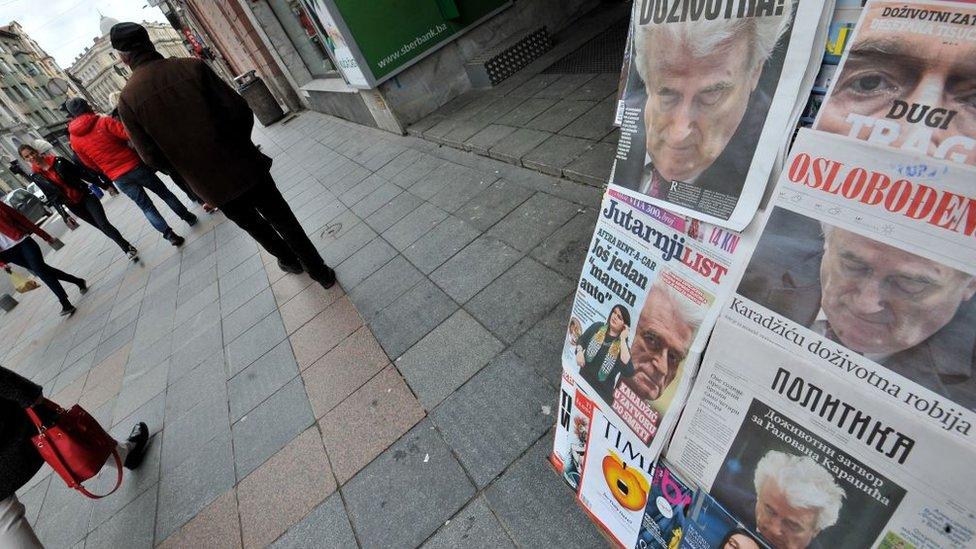Bosnia: Protesters condemn Mass for WWII Croat Nazi collaborators
- Published
Security has been stepped up in Bosnia-Herzegovina's capital Sarajevo ahead of a Mass to remember Croatia's Nazi collaborators in World War Two.
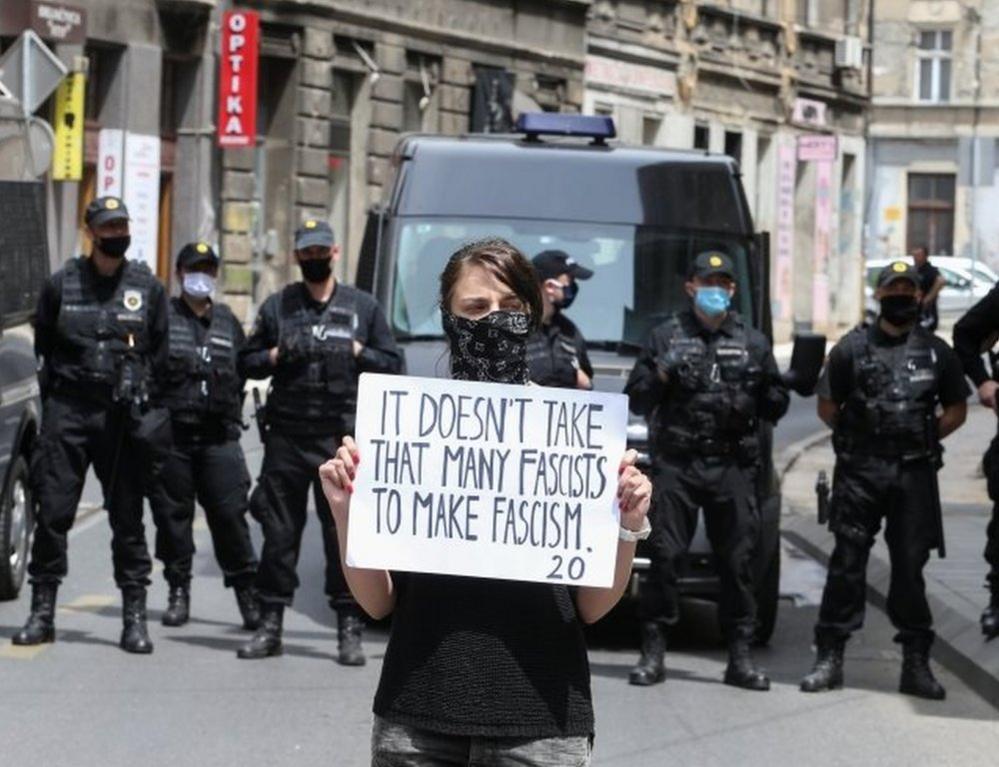
Anti-fascists organisations and activists took to the streets of the city to protest against the religious service.
The annual event, usually held in the Austrian town of Bleiburg where Croatia's pro-Nazi Ustasha regime troops had gone to surrender to British forces, was moved to Bosnia because of coronavirus restrictions.
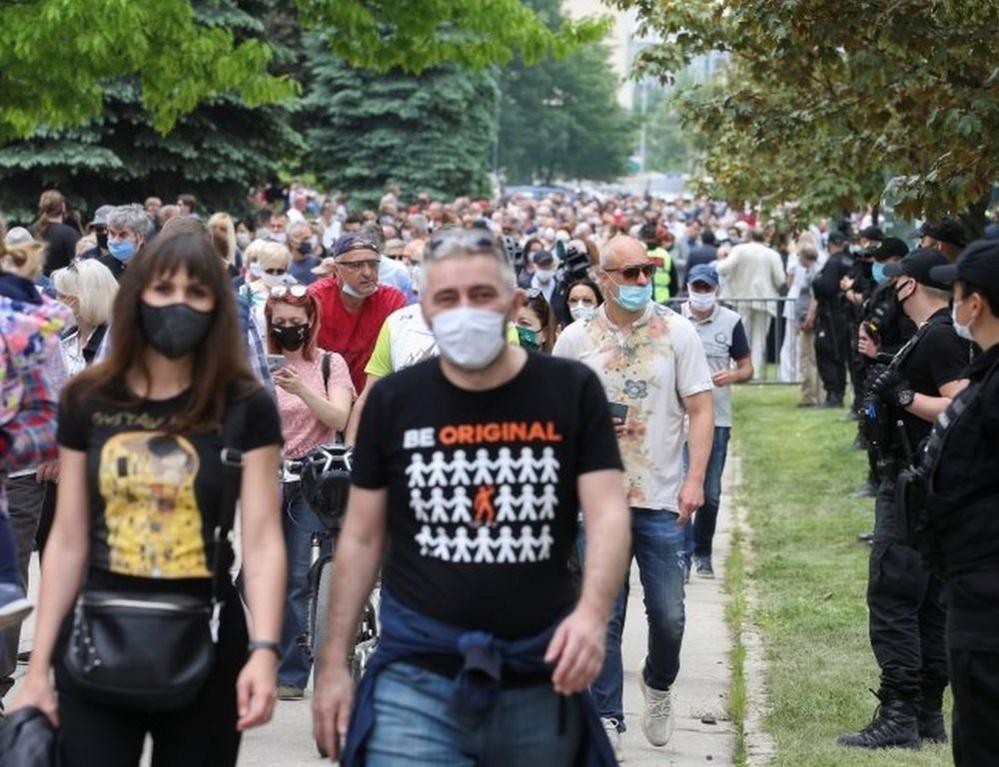
Thousands of people marched in Sarajevo, as police closely watched. There were no reports of violence.
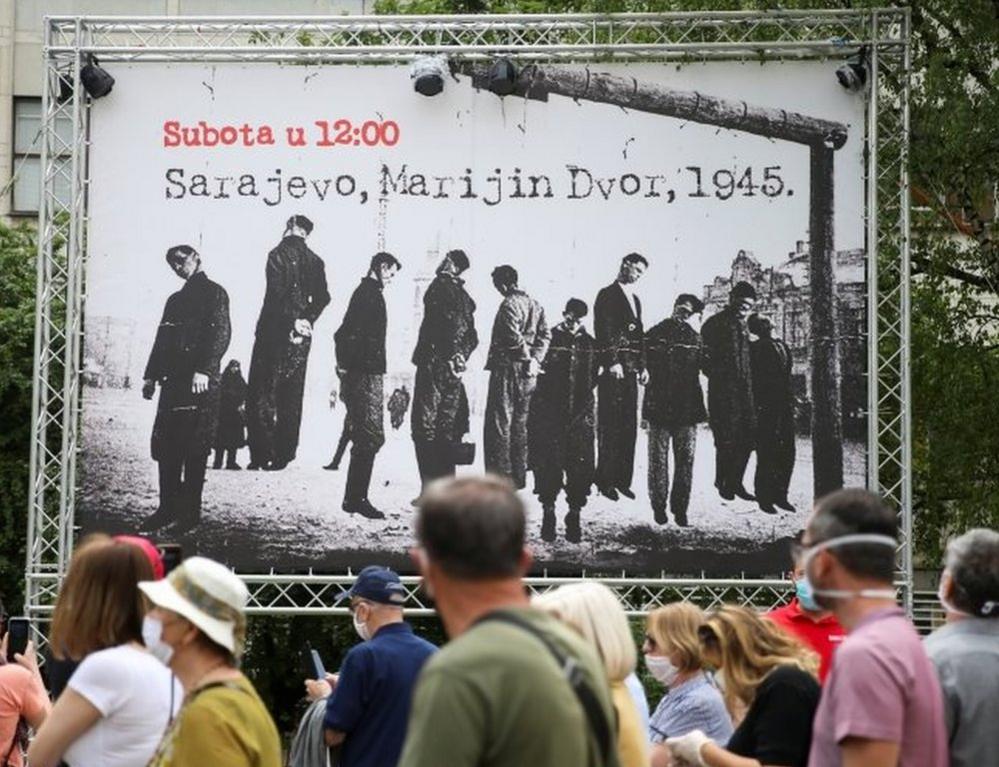
The fascist Ustasha regime ruled Croatia as a puppet regime of Nazi Germany from 1941 to 1945, their country having been expanded to include all of Bosnia and some parts of Serbia.
During that period, they set about exterminating the Serb, Jewish, and Gypsy inhabitants.
Photographs showing victims of Nazi forces and the Ustasha regime had been placed along the route of the protest march.
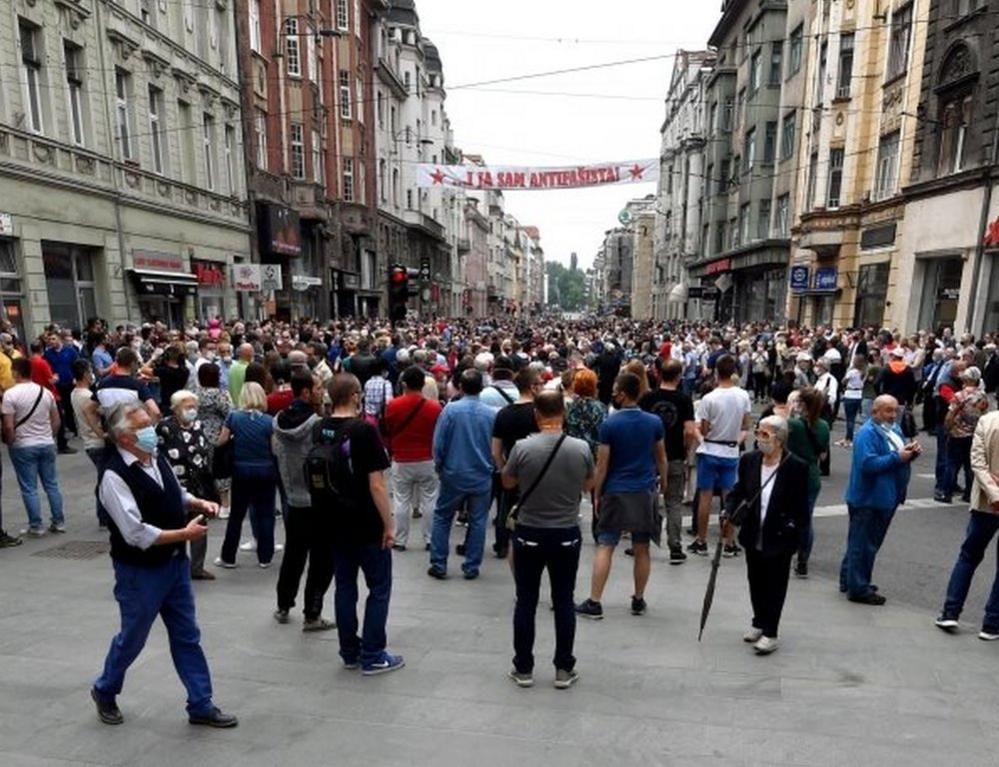
Big crowds later gathered in the city centre, as the Mass was condemned by Sarajevo's mayor, the president of Croatia, and the World Jewish Congress. The Nazi-hunting Simon Wiesenthal Center described the event as a "travesty of memory and justice".
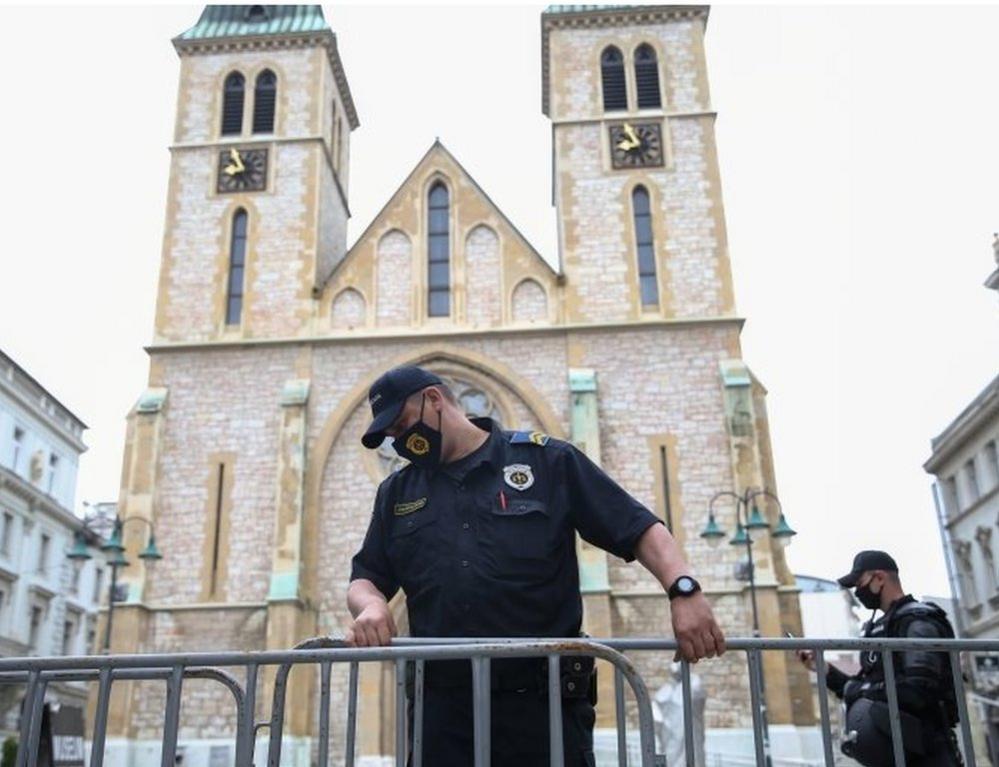
Police sealed off the area around the Sacred Heart Cathedral, where the Mass was held on Saturday morning. Sarajevo Archbishop Vinko Puljic, who led the service, rejected all the accusations and said praying for victims' souls did not mean approval of their acts.
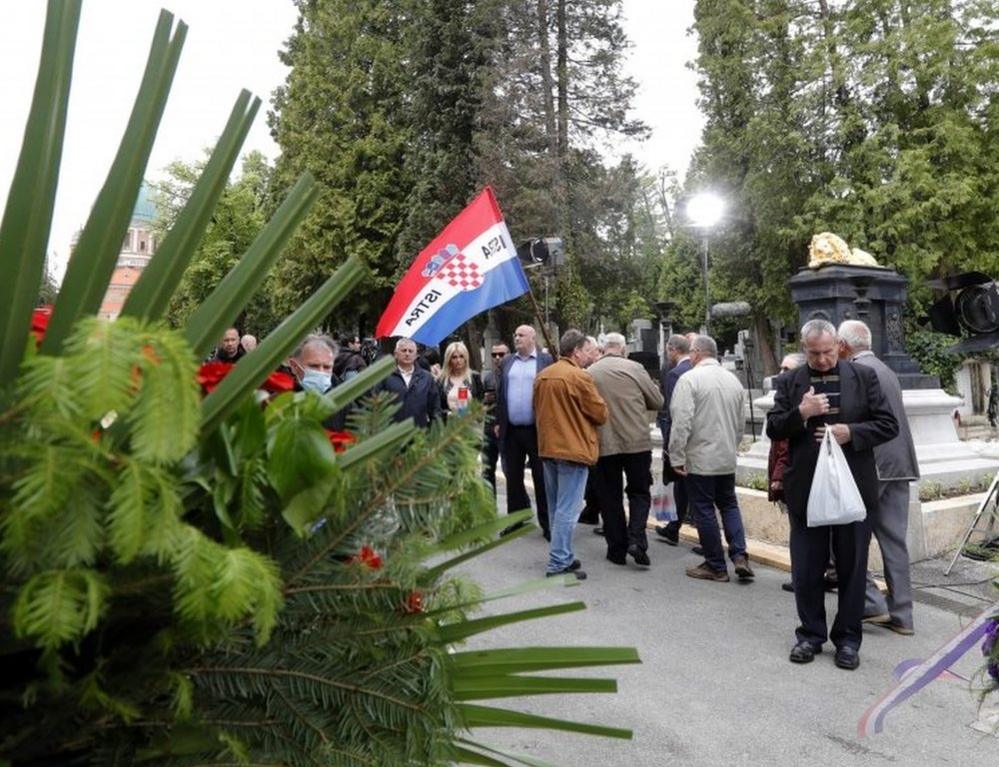
A similar memorial event was held in Croatia's capital Zagreb. Tens of thousands of Nazi-allied Croatian soldiers and their families fled to Austria at the end of World War Two. But British forces handed them over to Yugoslav partisans, who killed many of them at Bleiburg and on a forced march back to Yugoslavia.
- Published22 July 2016
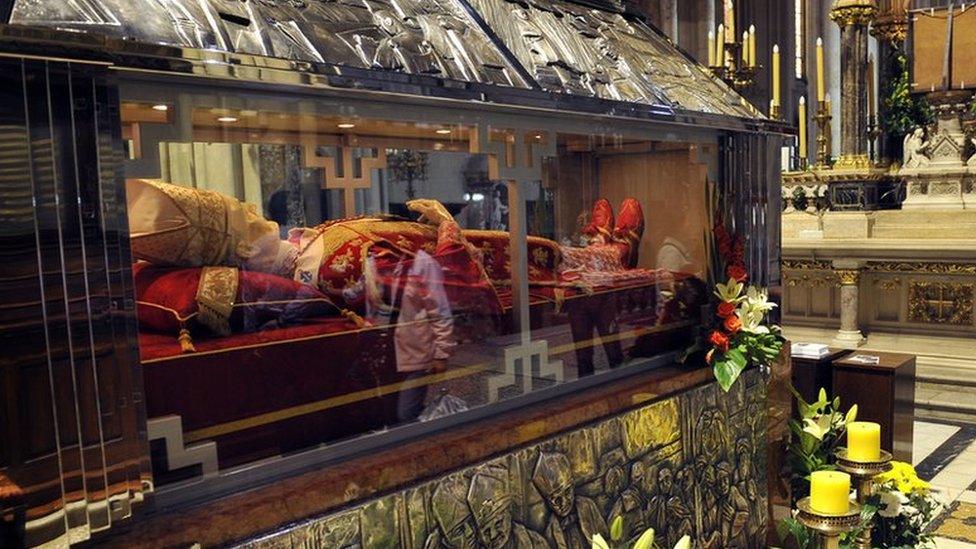
- Published17 April 2013
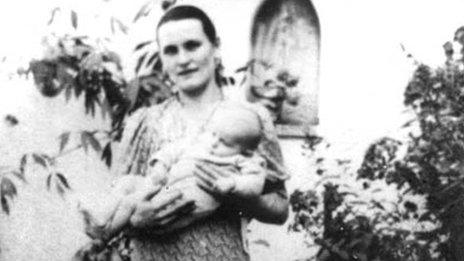
- Published11 October 2024
